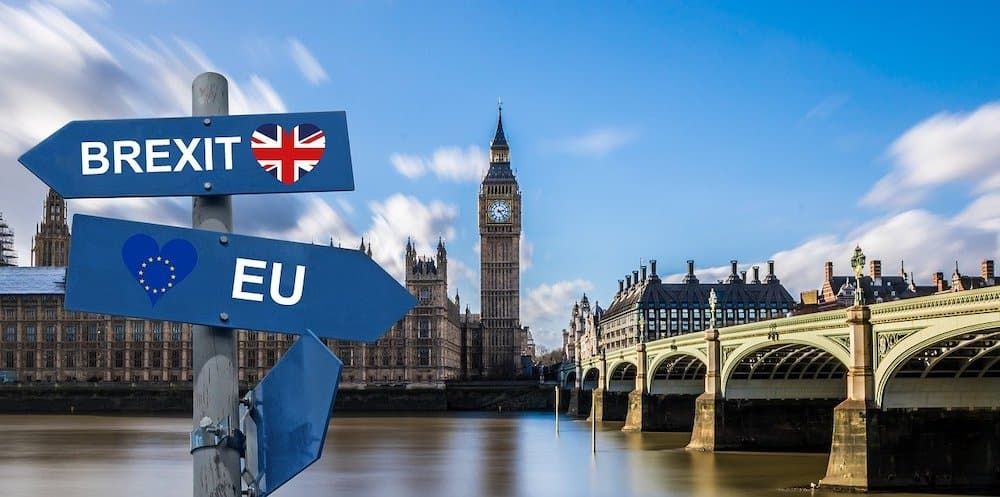 |
| British economy falls into crisis vortex, London's 'weapon' backfires, is Brexit to blame? (Source: IFL) |
The latest figures show the UK economy is off to a lacklustre start in 2023 as inflation eats into households' disposable incomes. And economists see a looming recession risk as higher interest rates continue to hurt even as inflation eases.
Inflation has cooled down, why are people still worried?
Inflation in the UK, where people are under greater pressure to spend than most other rich countries, has cooled down. Specifically, consumer prices fell slightly to 7.9% in June compared to the same period in 2022, according to the UK Office for National Statistics (ONS). Inflation in the UK reached 8.7% in May.
The surprise data sent UK stocks soaring on hopes that the Bank of England (BoE) would not need to raise interest rates as sharply as previously expected. However, while slowing inflation has boosted investor optimism, Britons are still under pressure as prices and interest rates remain high. UK consumer prices continue to rise too quickly, faster than in most other rich countries, leading to the biggest fall in real incomes in 70 years.
Pressured by rising inflation, which has reached a 41-year high, the cost of living is rising faster than incomes. Natural gas prices spiked after the Russia-Ukraine conflict broke out and have been falling slowly since.
The survey, conducted by ONS from June 28 to July 9 with 2,156 participants, showed that nearly a third of British respondents were using savings to pay bills, and nearly half were having difficulty paying rent and bank debts.
Over the past year, Britain has experienced strikes in the healthcare, transport and education sectors as workers fought to protect their purchasing power.
However, the main "weapon" in the fight against inflation remains the BoE's decision to raise interest rates. Meanwhile, policymakers argue that it will take time for interest rate increases to take effect.
The tightening of household spending looks set to continue as the Bank of England (BoE) aggressively raised interest rates to a 15-year high of 5% in June and investors see little sign of the end of its tightening cycle. Today (September 21), people are 'holding their breath' waiting for the BoE's interest rate decision.
64/65 economists participating in a recent Reuters survey still believe that the BoE will raise interest rates from 5.25% to 5.5%, the highest level since 2007.
"GDP data has confirmed the UK economy has emerged from recession in early 2023. But with around 60% of the drag from higher interest rates yet to be felt, we still expect the economy to be in a difficult position in the final months of the year," said Ashley Webb of consultancy Capital Economics.
Brexit is the 'culprit'?
There is currently a lot of negative news about the UK economy, while many blame Brexit. However, the reality shows that this is not necessarily the case.
Politically, the Brexit issue seems increasingly clear in Britain, with many believing that leaving the European Union (EU) was a failure. Around 60% of them said the decision “was a mistake”, only 10% said Brexit was going well “at the moment” and 30% said it would be positive “in the long run”.
In such circumstances, all the country's ills can ultimately be blamed on Brexit, from soaring inflation, deteriorating schools, long hospital queues, economic stagnation... But is that really the case?
On September 1, the ONS published a major statistical revision, including figures relating to 2020 and 2021 during the pandemic period, concluding that the UK economy is significantly stronger than initially estimated.
In the fourth quarter of 2021, the country’s GDP ended up being 0.6% higher than the same period in 2019, before the pandemic, instead of being 1.2% lower as previously calculated. Suddenly, with nearly two points of GDP recovered, it can be seen that the UK economy does not seem to be doing so badly after leaving the EU.
If this new calculation is correct, and if the 2022 and 2023 figures themselves do not change radically, this would mean the economy is now 1.5% higher than its pre-pandemic level. That is similar to France, significantly better than Germany (0%), but worse than Italy (2.1%), Japan (3.5%), Canada (3.5%) or the US (6.1%).
Obviously, with these bright figures, the British government can “celebrate”. Finance Minister Jeremy Hunt affirmed: “These figures show that we have recovered better than many other G7 economies”. So is it true that Brexit has had no negative impact on the British economy?
However, back on 1 January 2021, when the UK left the European single market and since then, all businesses exporting or importing have faced border checks. Brexit has certainly had an impact on trade relations with Europe.
Even pro-Brexit economists recognise this. Julian Jessop, an independent economist, wrote in the Daily Telegraph : “The current figures alone are not enough to prove that Britain is unaffected by Brexit.”
Douglas McWilliams, vice president of the Centre for Economic and Business Research (CBER), a Brexit supporter, warned: “The truth is that before Brexit, the UK economy was doing slightly better than its EU peers, and now it is doing just as poorly.”
The problem is that in the wake of an unprecedented pandemic and an ongoing military conflict in Europe – two major shocks – it is difficult to sort out the impact of leaving the EU alone. To determine the extent of the damage, economist John Springford of the Centre for European Reform compared the UK economy with 22 other countries that grew at similar rates before Brexit.
Using new UK data, he found a gap of 5 points of GDP between the “no Brexit” UK economy and the current economy. Five points of GDP lost in seven years (since the 2016 referendum), “it’s a slow deflation,” he points out.
That may be true, but is such a big shock credible when the UK economy is now doing as well (or as badly) as the French economy? While some or even much of the change today could be due to Brexit, or other intervening factors such as US fiscal policy, or the acceleration of the economic recovery in Greece...
Expert Julian Jessop believes that the impact of Brexit is almost negligible. He believes that the negative impact of Brexit on the UK's GDP is only about 2-3% of GDP.
After all, of course, no one believes there are any economic benefits to Britain leaving the European single market. And the fact is that Britain’s trade volume has fallen and labour shortages are becoming more acute as the free movement of workers ends.
Ultimately, and perhaps not so much the main issue, McWilliams says Britain’s success depends on “how well the country manages.” He specifically mentions the country’s ability to manage the decarbonization of the economy and address the instability in the public sector. He says the impact of Brexit is secondary for now.
Source



![[Photo] Binh Trieu 1 Bridge has been completed, raised by 1.1m, and will open to traffic at the end of November.](https://vphoto.vietnam.vn/thumb/1200x675/vietnam/resource/IMAGE/2025/10/2/a6549e2a3b5848a1ba76a1ded6141fae)





































































































Comment (0)